We are excited to announce the third TANGO2 Family Conference, scheduled from Sunday, June 23rd to Tuesday, June 25th, 2024, in Orlando, Florida! Thanks to a grant awarded to the TANGO2 Research Foundation in early 2023, we have designated funds to organize this empowering family conference.
As advocates for patient and family engagement, we strongly encourage you to actively participate in the research planning process. During the conference, experts will share the latest developments and insights on TANGO2, including updates on the ongoing natural history study and current research endeavors. Your valuable input will shape the direction of future investigations, directly influencing research initiatives for TANGO2 deficiency disorder.
To facilitate maximum family participation, we are delighted to inform you that the grant will cover a significant portion of the conference expenses. This includes two nights of accommodation at the Disney’s Coronado Springs in Orlando, Florida, as well as five meals over the course of the 2.5-day event. Additionally, child care will be provided for families who need it.
This is an exceptional opportunity to connect with your TANGO2 family and play a pivotal role in shaping the future of TANGO2 research. Don’t miss out on this invaluable experience!
*Please note that our hotel room block at Disney’s Coronado Springs Resort is now sold out. However, guests can stay at Disney’s Port Orleans Resort – Riverside. Please be aware that guests staying at Port Orleans will need to arrange their own transportation or book ride share services to get to the conference venue.
CONFERENCE PROGRAM*
SUNDAY JUNE 23
5:00 PM – 7:00 PM
Welcome Reception
MONDAY JUNE 24
12:00 PM – 5:00 PM
Poster Sessions
7:30 AM – 9:00 AM
Breakfast
9:00 AM – 9:10 AM
Founder’s Welcome [Kasha Morris]
9:10 AM – 9:40 AM
Keynote: From Athlete, to Patient, to Advocate [Rob Long, MS]
9:40 AM – 9:50 AM
TANGO2 Basics [Seema Lalani, MD]
9:50 AM – 10:20 AM
Investigating TANGO2-Deficiency Disorder Phenotype and Mechanism in a C. elegans Model [Sarah Sandkuhler, MS]
10:20 AM – 10:50 AM
Zebrafish Models of TANGO2 deficiency for preclinical studies of TDD [Vandana Gupta, PhD]
Break
11:20 AM – 11:50 AM
TANGO2 Deficiency in Arrhythmogenesis – From Bedside to Bench [Na Li, PhD]
11:50 AM – 12:20 PM
Towards an understanding of the function of TANGO2 [Michael Sacher, PhD]
12:20 PM – 1:30 PM
Lunch
1:30 PM – 2:00 PM
TANGO2 functions in the pathway of Acyl-CoA metabolism [Agustin Lujan, MD, PhD]
2:00 PM – 2:30 PM
Understanding neurodevelopment in TANGO2 Deficiency Disorder [Lilei Zhang, MD, PhD]
2:30 PM – 3:15 PM
Natural History Study Update & Next Steps [Christina Miyake, MD, MS]
Break
3:45 pm – 4:15 PM
B-Vitamins and Beyond [Nourhan Suleiman, RDN, LD]
4:15 PM – 4:45PM
22q and TANGO2 [Donna McDonald-McGinn, MS, LCGC]
4:45 PM – 5:15 PM
End of Day Q&A Panel
5:15 PM – 5:25 PM
Closing Remarks [Seema Lalani, MD]
TUESDAY JUNE 25
9:00 AM – 5:00 PM
Poster Sessions
7:30 AM – 9:00 AM
Breakfast
9:00 AM – 9:05 AM
Welcome: Moving TDD Research Forward [Deena Chisholm, MPH, CHES]
9:05 AM – 9:30 AM
PCOR/CER & its importance in the Rare Disease Community [Courtney Clyatt, MPH]
9:30 AM – 10:45 AM
TDD PCORI Workshop #1: Research Roadmap Development [Facilitators: Ryan Carrier, MD, Amy Clay & Kasha Morris]
Break
11:15 AM – 12:00 PM
Panel Presentation – Empowering the TANGO2 Community: Strength in Support [Amanda Hull, PhD, Vanni Le, MS, & Ronda Thorington, LPC]
12:00 PM – 1:30 PM
Lunch & Shine a Light on TANGO2 Celebration [Ann Geffen, MA, JD, & T2RF Fundraising Committee]
1:30 PM – 2:15 PM
Discussion Session Option #1: Highlighting TANGO2 Caregiving Experiences Through the Years & Sick Day Protocol [Facilitators: Kaitlyn Friar (<4yrs), Veronica Jones (5-11yrs), Debbie Deloach (angels), Robin Mitchell (12+)]
Discussion Session Option #2: Get it “Write” for TANGO2 [Facilitators: Chaya Murali, MD & David Curtis, BS]
2:15 PM – 3:00 PM
Panel Presentation – Navigating Movement Disorders associated with TDD: The Vital Role of a Movement Specialist & Families in Diagnosis & Treatment [Samuel Mackenzie, MD, PhD, Emily Uduezue, OTD, OTR/L, Kara Cameron]
Break
3:30 PM – 4:15 PM
Panel Presentation – Heart to Heart: Understanding Cardiac Challenges in TANGO2 Deficiency Disorder [Joshua Meisner, MD, PhD, Cheyenne Beach, MD, Giorgio Pochettino]
4:15 PM – 5:00 PM
Panel Presentation – Building Blocks for a Cure: Clinical Trial Readiness in TDD [Christina Miyake, MD, MS, Charlotte Engebrecht, BS, Madeline Chadehumbe, MD]
5:00 PM – 5:25 PM
Q&A Session
5:25 PM – 5:30 PM
Closing Remarks [Ann Geffen, MA, JD]
*NOTE: The program is subject to change.
AGENDA AT A GLANCE*
SUNDAY JUNE 23
5:00 PM – 7:00 PM
Welcome Reception
MONDAY JUNE 24
12:00 PM – 5:00 PM
7:30 AM – 9:00 AM
9:00 AM – 9:10 AM
9:10 AM – 9:40 AM
9:40 AM – 9:50 AM
9:50 AM – 10:20 AM
10:20 AM – 10:50 AM
10:50 AM – 11:20 AM
11:20 AM – 11:50 PM
11:50 AM – 12:20 PM
12:20 PM – 1:30 PM
1:30 PM – 2:00 PM
2:00 PM – 2:30 PM
2:30 PM – 3:15 PM
3:15 PM – 3:45 PM
3:45 PM – 4:15 PM
4:15 PM – 4:45 PM
4:45 PM – 5:15 PM
5:15 PM – 5:25 PM
Poster Sessions
Breakfast
Founder’s Welcome [Kasha Morris]
Keynote: From Athlete, to Patient, to Advocate [Rob Long, MS]
TANGO2 Basics [Seema Lalani, MD]
Investigating TANGO2-Deficiency Disorder Phenotype and Mechanism in a C. elegans Model [Sarah Sandkuhler, MS]
Zebrafish Models of TANGO2 deficiency for preclinical studies of TDD [Vandana Gupta, PhD]
Break
TANGO2 Deficiency in Arrhythmogenesis – From Bedside to Bench [Na Li, PhD]
Towards an understanding of the function of TANGO2 [Michael Sacher, PhD]
Lunch
TANGO2 functions in the pathway of Acyl-CoA metabolism [Agustin Lujan, MD, PhD]
Understanding neurodevelopment in TANGO2 Deficiency Disorder [Lilei Zhang, MD, PhD]
Natural History Study Update & Next Steps [Christina Miyake, MD, MS]
Break
B-Vitamins and Beyond [Nourhan Suleiman, RDN, LD]
22q and TANGO2 [Donna McDonald-McGinn, MS, LCGC]
End of Day Q&A Panel
Closing Remarks [Seema Lalani, MD]
TUESDAY JUNE 25
9:00 AM – 5:00 PM
7:30 AM – 9:00 AM
9:00 AM – 9:05 AM
9:05 AM – 9:30 AM
9:30 AM – 10:45 AM
10:45 AM – 11:15 AM
11:15 AM – 12:00 PM
12:00 PM – 1:30 PM
1:30 PM – 2:15 PM
2:15 PM – 3:00 PM
3:00 PM – 3:30 PM
3:30 PM – 4:15 PM
4:15 PM – 5:00 PM
5:00 PM – 5:25 PM
5:25 PM – 5:30 PM
Poster Sessions
Breakfast
Welcome: Moving TDD Research Forward [Deena Chisholm, MPH, CHES]
PCOR/CER & its importance in the Rare Disease Community [Courtney Clyatt, MPH]
TDD PCORI Workshop #1: Research Roadmap Development [Facilitators: Ryan Carrier, MD, Amy Clay & Kasha Morris]
Break
Panel Presentation – Empowering the TANGO2 Community: Strength in Support [Amanda Hull, PhD, Vanni Le, MS, & Ronda Thorington, LPC]
Lunch & Shine a Light on TANGO2 Celebration [Ann Geffen, MA, JD, & T2RF Fundraising Committee]
Discussion Session Option #1: Highlighting TANGO2 Caregiving Experiences Through the Years & Sick Day Protocol [Facilitators: Kaitlyn Fryar (<4yrs), Veronica Jones (5-11yrs), Debbie Deloach (angels), Robin Mitchell (12+)]
Discussion Session Option #2: Get it “Write” for TANGO2 [Facilitators: Chaya Murali, MD & David Curtis, BS]
Panel Presentation – Navigating Movement Disorders associated with TDD: The Vital Role of a Movement Specialist & Families in Diagnosis & Treatment [Samuel Mackenzie, MD, PhD, Emily Uduezue, OTD, OTR/L, Kara Cameron]
Break
Panel Presentation – Heart to Heart: Understanding Cardiac Challenges in TANGO2 Deficiency Disorder [Joshua Meisner, MD, PhD, Cheyenne Beach, MD, Giorgio Pochettino]
Panel Presentation – Building Blocks for a Cure: Clinical Trial Readiness in TDD [Christina Miyake, MD, MS, Charlotte Engebrecht, BS, Madeline Chadehumbe, MD]
Q&A Session
Closing Remarks [Ann Geffen, MA, JD]
*NOTE: The program is subject to change.
REGISTRATION FEES:
Registration fees include the following: Sunday evening meal, Monday breakfast, Monday lunch, Tuesday breakfast, Tuesday lunch, 2 day access to kids/teens camp, and 1 hotel room per family for 2 nights.
Family Members/Students/Residents/Fellows: $100 per person
Medical/Scientific Professionals: $300 per person
Other guests: $300 per person
If you would like to apply for a grant to attend this conference, contact grants@tango2research.org
For information about applying for a travel grant, please contact grants@tango2research.org
SPEAKERS
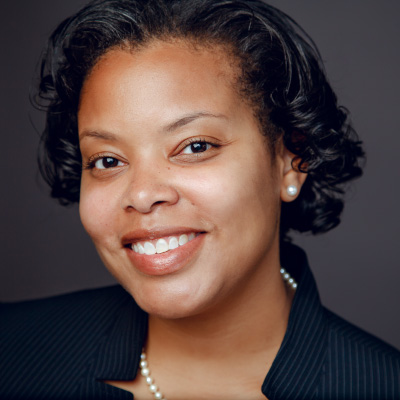
Courtney Clyatt, MPH
Courtney Clyatt is a Senior Program Officer for Engagement at the Patient-Centered Outcomes Research Institute (PCORI). She came to PCORI with more than 10 years of experience in public health and project management. In her position, she has played a vital role in the Engagement Awards program and, specifically, the Pipeline to Proposal Awards, which funded community-building and engagement projects. Currently, her work has been focused on helping smaller organizations to build capacity to engage in patient-centered comparative effectiveness research.

David Curtis, BS
David Curtis is second-year medical student at Baylor College of Medicine with a keen interest in pursuing residency programs in clinical genetics. Alongside this specialization, he is deeply invested in Health Ethics, Health policy, and the medical humanities, aiming to integrate these passions into my future medical practice.

The Driffill Family, T2RF Shine a Light Ambassador Family
Phoebe was diagnosed with Tango2 aged 6 following 4 years of unexplained medical symptoms and ‘wobbles’. She is bright, bubbly and full of joy and dearly loved. Hope and Joseph are Phoebe’s big sister and brother and do not have Tango2. Tim (Dad) works in Finance and Hannah (Mum) is a family doctor (MBChB, RCGP, FSRH). They are based in the UK.
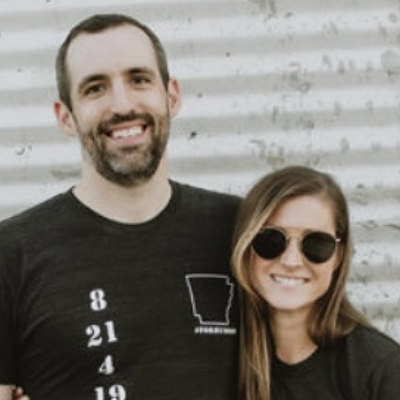
The Fryar Family, TANGO2 Family
Kaitlyn and Russ Fryar are parents to a fun and loving TANGO2 warrior and to their strong-willed, loving 5-year-old daughter. With years of grieving and honoring their TANGO2 Hudson, they are honored to share their experiences in the hope of bringing awareness and encouragement to TDD families.

Vandana Gupta, PhD
Dr. Gupta’s laboratory studies the genetics of neuromuscular diseases. Her research group has identified several new genes in neuromuscular diseases and developed animal models to test novel therapeutics and study disease pathophysiology.

Na Li, PhD
Dr. Li is a tenured Associate Professor in the Department of Medicine at Baylor College of Medicine. Her primary research objective focuses on unveiling the intricate molecular mechanisms underlying cardiac arrhythmias. The team employs genetically modified mouse models to elucidate the molecular mechanisms of common and rare forms of cardiac arrhythmias.

Rob Long, MS
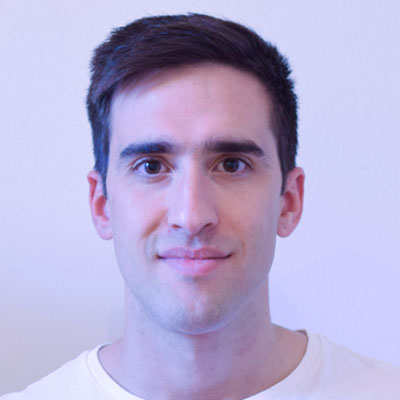
Agustin Lujan, MD, PhD

Donna McDonald-McGinn, MD, MS, LCGC
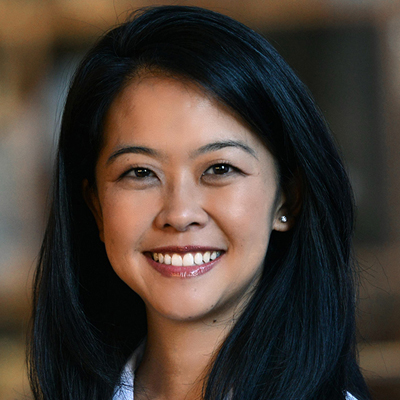
Christina Miyake, MD, MS, MPH

Chaya Murali, MD

Michael Sacher, PhD

Sarah Sandkuhler, BS
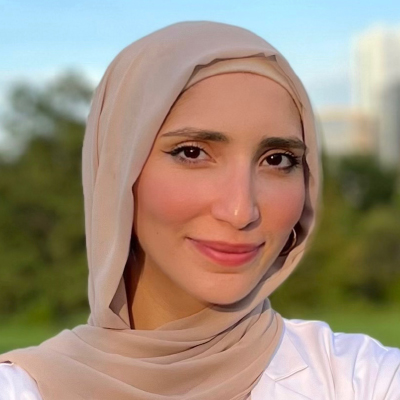
Nourhan Suleiman, RDN, LD
PANELISTS

Cheyenne Beach, MD
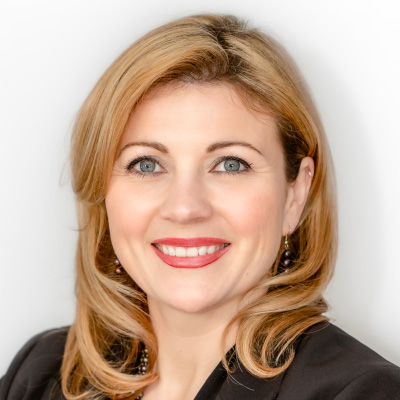
Kara Cameron

Ryan Carrier, MD

Madeline Chadehumbe, MD

Debbie DeLoach

Charlotte Engebrecht, BS
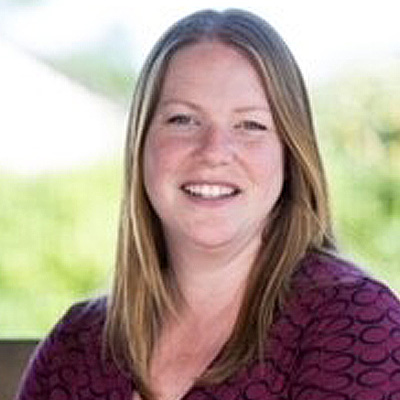
Amanda Hull, PHD (DPsych Ed)
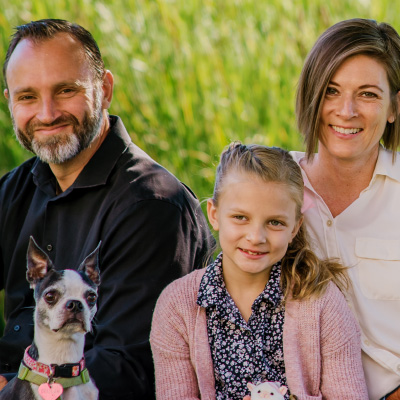
Veronica Jones and Tyson Swetek, TANGO2 Family
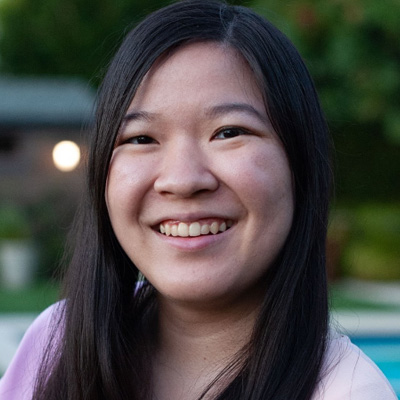
Vanni Le, MS
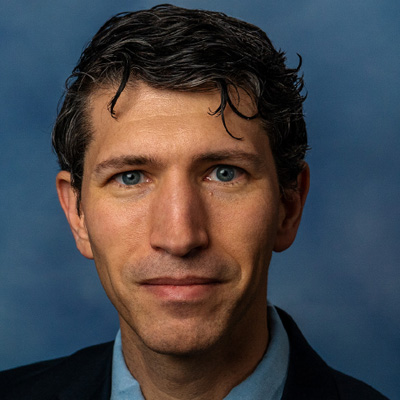
Joshua Meisner, MD, PhD

Robin Mitchell, MHSA
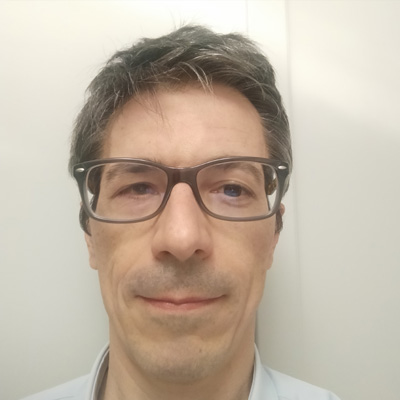
Giorgio Pochettino
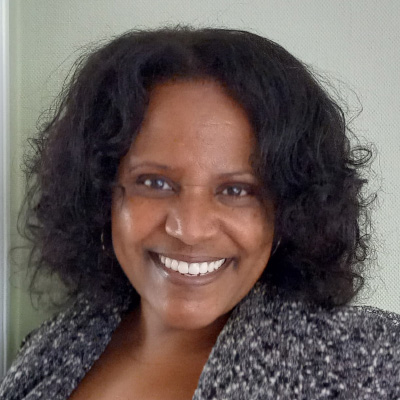
Ronda Thorington, LPC
FREQUENTLY ASKED QUESTIONS
FAQ – ROOM & HOTEL ACCOMMODATIONS
What if I want to stay extra nights at the hotel either before or after the conference, or both?
The website is set up to offer additional pre/post nights based on availability. The site will notate any unavailable nights if requested. You can adjust dates of stay to book available nights. If you still need a room for unavailable nights, you can book using our vacation rate website www.disneyworld.com or by calling our vacation line at 1-407-W-DISNEY to check for available resorts and rates.
What if I need more than 1 room reservation?
Guests may book additional rooms, however, the TANGO2 Research Foundation will only be covering the cost of 1 room per party for two nights (June 23rd & 24th 2024). Guests can book additional rooms on a first come first serve basis with no guarantee that you will be able to add rooms.
Can I add special requests to my room reservation such as connecting rooms?
Guests can add any requests (connecting rooms, adjoining rooms, room location, room view, room bedding, etc) in the ‘Requests’ field when booking their reservation. If you are traveling with others, please include the primary guest’s name on the other reservation they wish to be near. Please note requests are not guaranteed but the resort will try to fulfill as many requests as possible.
Are there any portable cribs available for young children?
Yes, you can contact the hotel to request a portable crib at no additional charge.
Can I add a cot or rollaway bed to a room reservation?
Yes, you can request one, however availability is not guaranteed. Please note Tower rooms will have an air mattress, if available.
Does the hotel resort have wheelchair accessible rooms?
Yes, on the website, you can select Attendee Type 2. Accessible Room to check for ADA room availability and book one of those rooms. If one is not showing up, book using Attendee and add a request for an ADA room and notate if a roll in shower or a tub is preferred. We will check availability and block if the preferred ADA room type is available.
I am not able to book my room reservation using the link provided. What should I do?
You may call the Group Reservations line at 1-407-939-4686, Monday – Friday 8:30am – 6pm (EST) and Saturday – Sunday 8:30am – 5pm (EST).
The weblink says the dates I selected are fully booked. What should I do?
You may call the Group Reservations line to see if a phone agent can assist. If the phone agent confirms there is no availability at the group rate, then guests can check the vacation website or phone number to check for available accommodations at other nearby resort hotels.
I want to call the resort hotel and speak to a person. What number should I call?
You may call the Group Reservations line at 1-407-939-4686. Do not call the resort directly, your call will be redirected if you are not a current checked-in guest at the hotel resort.
I want to call the hotel from outside the USA. What number should I call?
1-407-939-4686 is the main line for Group Reservations.
Can I cancel or change my hotel reservation once it is made?
Yes, the confirmation email will include a link the guest can use to make modifications to their currently booked reservation.
Is there a deadline for hotel cancellations or changes?
Yes, the confirmation email will include a link the guest can use to make modifications to their currently booked reservation.
Is there a deadline for hotel cancellations or changes?
There is no deadline for changes, hotel cancellations must be made more than 5 days prior to the arrival date
I would like to make dining reservations at the hotel resort. How do I do that?
You can make Disney World dining reservations for your trip up to 60 days in advance. We strongly recommend making reservations as close as you can to the 60-day mark. Dining reservations can be made by either calling Disney Dining at (407) WDW-DINE, online using the official Disney website, or booking via the My Disney Experience app.
Are there any accommodations for guests with disabilities?
Yes, please visit Disney World Guest Services page here to view the information.
FAQ – TRAVEL
What is the address of the hotel and conference location?
Disney’s Coronado Springs Resort: 1000 W Buena Vista Dr, Lake Buena Vista, FL 32830
What is the best airport to use to get to the conference?
Orlando International Airport (Airport code: MCO). 1 Jeff Fuqua Blvd, Orlando, FL 32827. This airport is approximately 24 miles (25 minutes) to and from Disney’s Coronado Springs hotel resort.
I’m interested in renting a car. How do I do that?
Coming Soon!
FAQ – REGISTRATION
Do I have to register people who are traveling with me but who will not be attending the conference? (ex. Grandparents, spouses, children)
No, however, everyone in your group must register if they plan to participate in any part of the conference including the Meet & Greet, meals, Kid Camp/Young Adult Supervision or conference sessions.
Do I need to register infants and children under 1 years old?
Yes, all members of your group should be registered including infants and children under one years old.
Can siblings who are not affected by TANGO2 register for the Kid Camp?
Yes, please register them and you can indicate an interest in Kid Camp. Young children to young adults are welcome at Kid Camp.
Where can I get more information about the bio bank samples?
Informational materials will be available on the website. You can also speak directly with a medical professional at the Conference before making a decision about bio bank participation.
I am an invited guest, how do I get a promo code?
Please contact info@tango2research.org
FAQ – THE CONFERENCE
When will the conference begin and end each day?
The conference will begin each day at about 9:00 AM EDT and end at about 5:00 PM EDT. Details will be in the conference agenda as they are confirmed.
Will the conference be recorded? Streamed live? Translated?
Portions of the conference will be recorded and shared with the community at a later date. At this time, we are not planning to stream the conference live. Recording closed captioning will be available in different languages.
Is there a dress code?
We recommend business casual attire as appropriate for the event. Dress as you feel most comfortable and please remember to bring a jacket or sweater for the air-conditioned conference rooms.
Will there be engagement and networking sessions?
Yes, the conference will include social and networking opportunities throughout the conference. Details will be in the conference agenda as they are confirmed.
Does the TANGO2 Research Foundation offer any financial assistance to attend the conference?
Yes, the TANGO2 Research Foundation does offer opportunities to get financial support for attending a the TANGO2 Family Conference. Please contact info@tango2research.org for more information.


